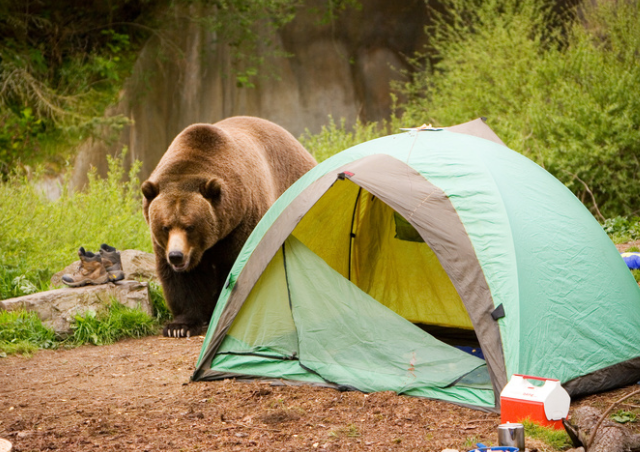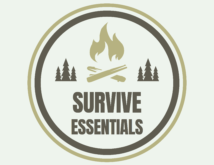Camping is a wonderful opportunity to reconnect with nature and create lasting memories. However, it’s important to prioritize safety during your outdoor adventure. In this blog post, we’ll share essential tips to ensure a secure camping experience. From campsite selection and fire safety to wildlife encounters and personal safety, these guidelines will help you enjoy a worry-free camping trip while staying protected in the great outdoors.

1. “Choosing a Safe Campsite: Location Matters”
Selecting a safe campsite sets the foundation for a secure camping experience. Look for a level area away from potential hazards such as dead trees, unstable slopes, or rocky ledges. Consider proximity to water sources and potential flooding risks. Avoid camping too close to cliff edges or bodies of water that pose drowning hazards. By choosing a safe location, you can minimize risks and maximize enjoyment.
2. “Fire Safety: Preventing Accidents and Wildfires”
Campfires provide warmth, cooking opportunities, and a cozy ambiance. Practice responsible fire safety by following campground regulations and local fire restrictions. Clear the area around your fire pit of flammable materials and keep a safe distance from tents and other structures. Always fully extinguish your fire before leaving the campsite or going to bed. By adhering to fire safety practices, you help prevent accidents and wildfires.
3. “Wildlife Awareness: Coexisting Safely”
Encounters with wildlife are part of the camping experience. Respect the natural habitat and observe wildlife from a safe distance. Store food securely in sealed containers to avoid attracting animals. Familiarize yourself with local wildlife and learn how to respond in case of encounters. Carry bear spray and know how to use it properly if camping in bear country. By practicing wildlife awareness, you can enjoy the beauty of nature while ensuring both your safety and the well-being of wildlife.
4. “Personal Safety: Protecting Yourself and Others”
Prioritizing personal safety is essential for a secure camping trip. Pack essential safety items such as a first aid kit, a whistle, a flashlight, and a multi-tool. Familiarize yourself with basic first aid techniques and know how to recognize and respond to common camping injuries. Communicate your plans with a trusted person and be mindful of your surroundings. By being prepared and aware, you can stay safe while enjoying the great outdoors.
5. “Weather Preparedness: Being Ready for Nature’s Changes”
Weather conditions can change rapidly in outdoor environments. Stay informed about weather forecasts and be prepared for various scenarios. Pack appropriate clothing for different weather conditions, including rain gear, extra layers, and sun protection. Seek shelter in case of severe weather and follow recommended safety guidelines. By being weather-prepared, you can adapt to changing conditions and ensure your comfort and safety.
6. “Campsite Security: Protecting Your Belongings”
Campsite security is essential to safeguard your belongings. Keep valuables locked in your vehicle or hidden and out of sight. Avoid leaving food unattended, as it may attract wildlife or unwanted pests. Consider bringing a portable safe or lockbox for additional security. By taking these precautions, you can minimize the risk of theft and enjoy peace of mind during your camping trip.
7. “Leave No Trace: Respecting the Environment”
Practicing Leave No Trace principles is crucial for preserving the natural environment and ensuring its beauty for future generations. Pack out all trash and dispose of waste properly. Respect wildlife habitats and vegetation by staying on designated trails. Minimize your impact by using biodegradable soap and camping in designated areas. By practicing Leave No Trace, you contribute to the sustainability and preservation of our natural resources.
Conclusion
Camping safety is essential for a rewarding and enjoyable outdoor adventure. By choosing a safe campsite, practicing fire safety, being wildlife-aware, prioritizing personal safety, preparing for changing weather conditions, securing your campsite, and practicing Leave No Trace principles, you can have a secure and memorable camping experience. Embrace the beauty of nature while taking proactive steps to ensure your well-being and the preservation of our natural environment. Happy camping!
As an Amazon Associate we earn from qualifying purchases through some links in our articles.




